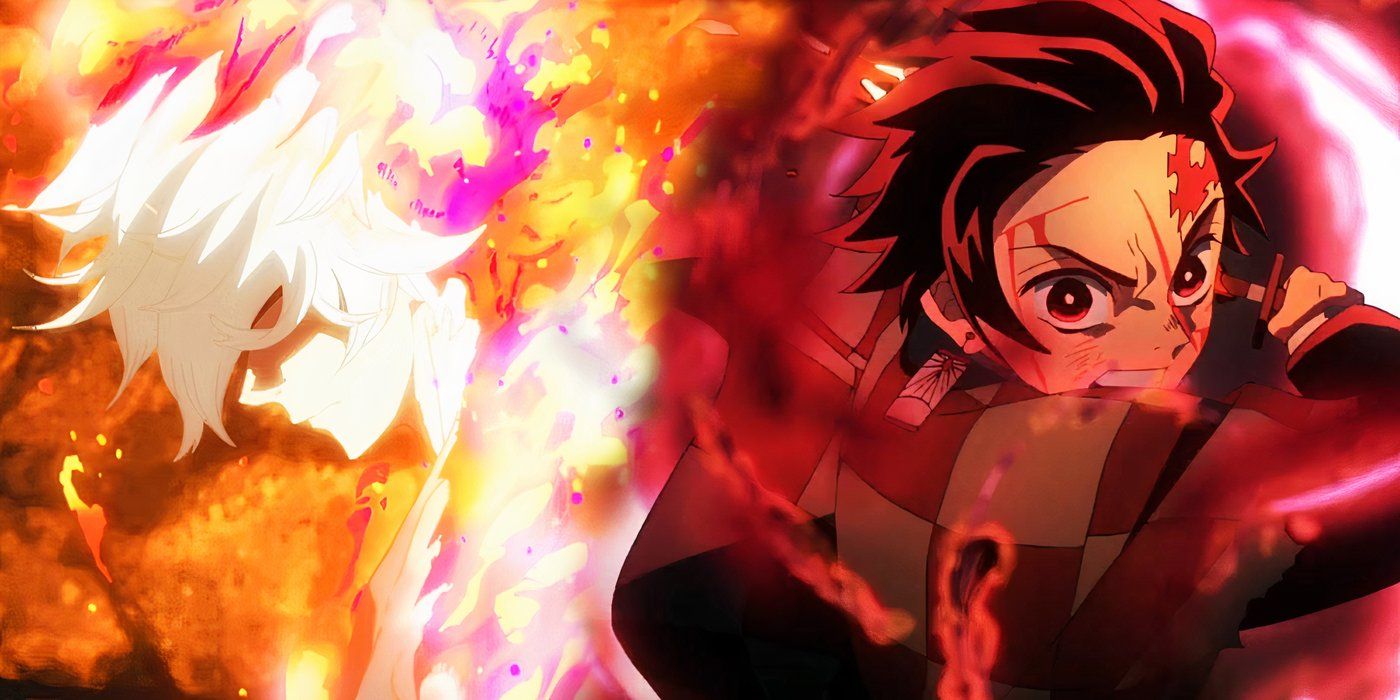
Few franchises can compare Demon Slayersophistication and heart, but Heaven and hell has done it. Created by Yuji Kaku, former assistant to Chainsaw Man's Tatsuki Fujimoto, Hell's Paradise became one of Shōnen Jump's hottest titles during its run. The first season of the anime, produced by legendary MAPpremiered on Crunchyroll and received rave reviews. With the second season of Hell's Paradise coming soon, Demon Slayer fans should add this must-watch series to their list.
Hell's Paradise tells the story of Gabimaru and his servant Yamada Asaemon Sagiri. Born in an elite shinobi village called Iwagakure, Gabimaru becomes the most notorious assassin in the village. He eventually gets married and decides to give up his career as an assassin, prompting the villagers to report his crimes to the authorities.
Faced with execution, Gabimaru participates in a death game called by the Shogun: travel to a mysterious island and return with the Elixir of Life in exchange for forgiveness. Gabimaru receives an invitation from Yamada, and the two team up in the hopes that Gabimaru can finally have a peaceful life with his wife.
Hell's Paradise Turns Demon Slayer's “Second Chance” Around
What does redemption really mean?
One of the most climactic moments in Demon Slayer is when, despite clear signs that Nezuko is still capable of human thought despite becoming a demon, some Hashira still call for her execution. Despite doing nothing wrong, her status as a demon is enough to justify her death. Tanjiro and Nezuko finally put forward their argument for a “second chance” to prove that Nezuko can be an asset.
This “second chance” trope, where someone’s life depends on showing their humanity despite harboring a sinister force, is largely rooted in Naruto’s heightened level of danger as a jinchuriki. It’s not just seen in Demon Slayer, but also in Jujutsu Kaisen and Black Clover. Hell’s Paradise turns it on its head by There is a basis for executing Gabimaru for the crimes he committed..
This makes the moral ambiguity of Hell's Paradise an incredibly fascinating evolution of shōnen morality. Demon Slayer asks what to do with people who accidentally become monsters but are still good. Hell's Paradise, on the other hand, ups the ante. It shows that Iwagakure is a harsh training village with a cruel view of life and the outside world, and Gabimaru didn't ask to be born there. Hell's Paradise asks what to do with people who accidentally become monsters, then do strange thingsbut want to give up that life.
Both series are about restoring family, but in different ways.
Hell's Paradise complicates Demon Slayer's simple morality
In Demon Slayer, Tanjiro and Nezuko gain many allies, such as Tamayo and Yushiro, with the ultimate goal of restoring Nezuko's humanity. Meanwhile, Nezuko must prove that her soul is still human and refrain from harming anyone but demons. In contrast, Gabimaru's ultimate motivation in Hell's Paradise is to return to a normal life with his wife.Both often deal with ideas of family and loss, but in contrasting ways.
In Hell's Paradise, alliances are formed sporadically, and all sorts of relationships emerge: betrayals, romances, and genuine friendships. While Demon Slayer's ultimate goal of restoring a normal family is noble, there is an irony in the fact that restoring Hell's Paradise depends not only on bureaucracy but also on the sheer chance of being the first to obtain the Elixir of Life and in turn benefiting the political order. The tangible forces of good and evil in Demon Slayer dissolve into ambiguity in Hell's Paradise, where power determines right/wrong and good/evil based on strength and authority.
Demon Slayer relies on a specific moral dichotomy (humans are good, demons are evil) to restore Tanjiro and Nezuko's ability to live normal lives. This is reflected in the fact that Nezuko is supposed to become a fully human being again. In contrast, the arbitrary social forces in Hell's Paradise declare Gabimaru a criminal, and in some ways, “inhuman” to himself and others.
Mistreatment and degradation of criminals are a part of everyday life in Hell Paradise. Executions are frequent, and 70% of those who arrive on the island die before arriving. Rather than an uplifting tale of good triumphing over evil, Gabimaru's reunion with his wife hinges on morality regarding power and the ability to seize opportunities in the most brutal way possible. Hell's Paradise ultimately becomes a much deeper critique of government and punishment.
Hell's Paradise is sleek, stylish and brutal.
Demon Slayer and Hell's Paradise Share Their Love for Garish
The Demon Slayer adaptations have always been well received. Koyoharu Gotouge's art is complemented by Ufotable's detailed and sensual production. Hell's Paradise matches Demon Slayer in both the beauty of its fight animation and the brutality of the battles themselves. Demon Slayer and Hell's Paradise share appeal with their contrasting gore, artistic fights, likable characters, lighthearted romance, and overt sexuality. Both series excel at makes the viewer feel like watching them is a fun violation because of confusion between contrasting stimuli.
The series joins hands in juxtaposing these very different aesthetic intensitiesBut Demon Slayer is less conspicuous overall. Hell's Paradise, on the other hand, is bolder in its contrast between fantasy, horror, and eroticism. In fact, it's bolder in every way. Regardless, both series scratch a certain subconscious itch in a way that few other series attempt to do.
They are beautiful watches, not in spite of but because of their confusing presentation, which instead serves as a vehicle for their wonderfully unexpected stories. In that way, their frenetic chaos becomes impossible to put down, proving the main theme is to stimulate one's own eyes to look beyond the weirdness in search of a deeper humanity. For Demon Slayer fans, Heaven and hell is an immediate and definitive recommendation.





